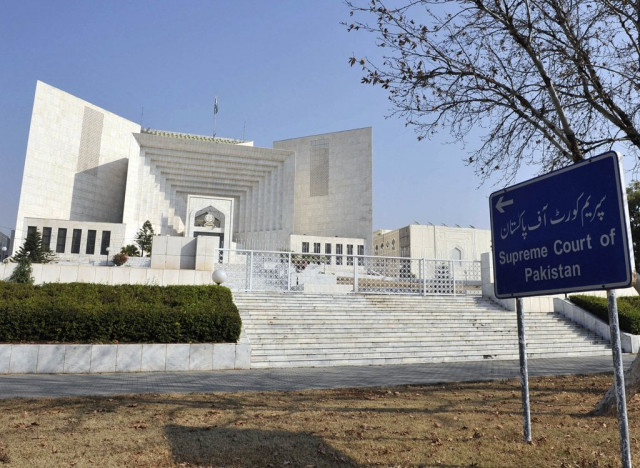SC issues notices to AGP, others in FGEHA plot case
Plea prays court to strike down IHC's decision to scrap policy on allotment of plots in capital on subsidised rates

The Supreme Court has issued notice to Attorney General for Pakistan (AGP) and respondents on a petition against the Islamabad High Court’s (IHC) judgment that had the scrapped the government’s revised policy on the allotment of plots in the federal capital on subsidised rates to top judges, lawyers and bureaucrats.
The petitioners had applied for plots in sectors F14 and F15 of Islamabad and were successful in acquiring them.
The IHC judgment had declared the allotment of plots to judges, bureaucrats and government employees in the special sectors of the federal capital as “unconstitutional”. The IHC verdict had affected six serving and several retired judges.
Read more: SC says only rich get plots in country
"The revised policy and the scheme pursuant thereto, intended to be launched in sectors F-12, G-12, F-14 and F-15, are in derogation of public interest and violative of the constitutionally guaranteed rights of the people at large. Thus they are illegal, unconstitutional, void and without jurisdiction," read a judgment authored by IHC Chief Justice Athar Minallah on Feb 3 this year.
A three-judge special bench of the apex court, led by Justice Munib Akhtar and comprising Justice Muhammad Ali Mazhar and Justice Ayesha Malik, took up the petitions on June 1.
The three members of the special bench are not beneficiaries of the plot allotment scheme.
It has been learnt that despite being offered, Justice Qazi Faez Isa, Justice Syed Mansoor Ali Shah, Justice Munib Akhtar and Justice Yahya Afridi of the Supreme Court as well as any serving judge of the IHC had not applied for the plots.
The IHC had declared that superior courts judges were not entitled to receive plots in a scheme launched by the FGEHA because no such privilege or entitlement had been included in the presidential orders.
Also read: IHC scraps policy of allotting plots to elites
The allottees who were government servants are represented by Hafiz Ahsaan Ahmad Khokhar.
It was argued neither there was such ground agitated nor prayed but the the high court exercised suo motu power which the constitution does not allow him to do so.
It is also contended that the allottees are seriously affected as they were legally allotted plots and they paid huge amounts many years ago to authority and even no notice was issued to them by IHC while deciding cases.
Further, the controversy relating to the acquisition of land has already been decided by SC and it is binding upon all, thus high court cannot resit again over earlier adjudication for the same sectors.
The counsel submitted that IHC cannot issue a declaration after dismissing the Intra Court Appeal (ICA) and other connected petitions, and could not at his own will do decide or issue the declaration. The judgment of the high court was actually beyond his jurisdiction.
It is also argued that suo motu power lies only with the apex court under Article 184 (3) of the Constitution and not with a high court. Therefore, the whole exercise of jurisdiction by the high court was not legal and should be struck down by SC.
After hearing the arguments at length, the bench issued notices to the attorney general of Pakistan and other respondents. The hearing of the case is adjourned for three weeks.



















COMMENTS
Comments are moderated and generally will be posted if they are on-topic and not abusive.
For more information, please see our Comments FAQ